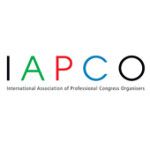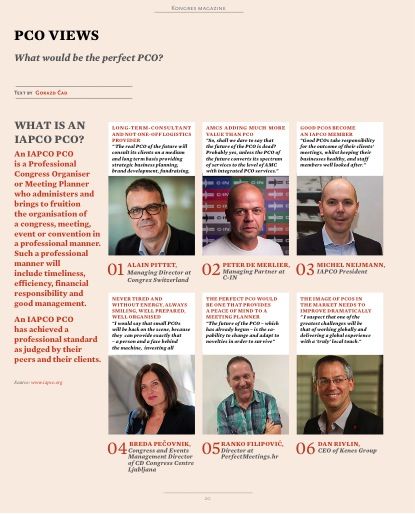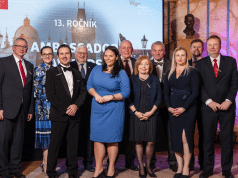THE FUTURE OF PCO
[pullquote]So, shall we dare to say that the future of the PCO is dead? Probably yes, unless the PCO of the future converts its spectrum of services to the level of AMC with integrated PCO services.[/pullquote] When professional congress management services (PCO) were introduced in Europe at the end of the 70s, it was positioned as a specialised profession with an exclusive focus on the management of the congress of academic and professional associations. Up to the beginning of the 90s – before the abolition of internal border controls and the introduction of the digital services – the focus remained on handling logistics and commodities. At that time, the PCOs became challenged by competitive activities like in-house management and AMCs, and this trend has been observed till today.
After the global economic downturn and the Congrex bankruptcy, many associations reconsidered their way of cooperation with PCOs, looking for increased transparency and financial security. This resulted in a wave of in-house management.
The AMC acts as an association partner offering modular services varying from commodities to participative leadership, including the congress management as most visible activity of the association. The congress objectives and expected outcomes should reflect the specific strategic priorities of the association (e.g. focus on young professionals and career development, digital services, involvement of patient organisations, new financing sources etc.).
And the business potential? There are still plenty of associations in demand for professionalising their services and brand, so the pool for new business remains promising.
Smart research and a well evaluated initial approach can avoid tenders. There are also new formats of professional organisations that are not neccessarily membership-based or even registered. Last but not least, in a fast evolving technology and health science market, new associations are being launched.
Once a PCO was warning their DMC colleagues about their blurry future, now it is the AMCs adding much more value than PCOs through a long-term, outsourced, modular service partnership.
THE PERFECT PCO
The perfect PCO acts as an association partner aiming for the best expected outcome of the congress.
This will be done by an evaluation survey of the past congress, implementing relevant and affordable new congress elements (design and technology), stimulating delegate engagement and assuring return on investments. This is done by focusing on improvements on education access, network extension and business acquisitions.
By doing so, budgeting opens also new income perspectives beyond the traditional income sources, like crowdfunding and CSR contributions.
About the Author
As a doctor in pharmaceutical sciences, Peter has a lifelong interest in advancements in life science discoveries.
After a decade of representing three international medical device companies, in 2002 Peter decided to take the challenge of co-founding C-IN, a modular service provider to European health science and technology associations.
To keep up the good business mind, he enjoys free time with the family and exploring alpine regions and trails on his mountainbike.
WHAT IS AN IAPCO PCO?
An IAPCO PCO is a Professional Congress Organiser or Meeting Planner who administers and brings to fruition the organisation of a congress, meeting, event or convention in a professional manner. Such a professional manner will include timeliness, efficiency, financial responsibility and good management.
An IAPCO PCO has achieved a professional standard as judged by their peers and their clients. Each member has had to undergo rigorous entry criteria:
WHAT IS AN IAPCO PCO?
— Proof of organisation of 10 international meetings, of which 5 must be of over 400 participants
— Confidential references received from past clients
— Site inspection of a selected international congress
— Successful interviews by peer review of international client, local organising committee, delegates and exhibitors of a selected international congress
— Inspection of offices and audit of procedures
— Once accepted into the Association, an IAPCO PCO has to maintain their membership by participating in an annual quality assessment including:
— Statutory returns to prove on-going trading and notification of management changes
— Submission of Congress Check Lists to ensure continuous activity in the international meetings market
— Quality Self Assessment to position oneself against one’s competition and peers and to provide a benchmark for improvement
— Attendance at the annual Quality Seminar at least once every three years
As a result of the above, an IAPCO PCO offers a unique quality assurance recognised by congress clients and suppliers all over the world.

WHAT IS THE DIFFERENCE BETWEEN AN IAPCO PCO AND A NON-MEMBER PCO?
A non-member PCO may differ from an IAPCO PCO in one or more of the following ways:
– Core business is not professional congress organisation
– Level of expertise is not ensured through continuous quality control and assurance procedures
– Not under review by a Committee of Ethics in case of a dispute
– Not stimulated to take part in annual educational programmes
– Not part of an international forum exchanging ideas and expertise.
– This does not mean that non-member PCOs are unqualified to do the job to the highest level; it means that, when engaging or employing a PCO, careful attention should be paid to the level of expertise and quality assurance to ensure that the right PCO is selected.
IAPCO is a worldwide sign of quality and the solution to congress organising is to appoint an IAPCO member.

[xyz-ihs snippet=”KONGRES-SEPTEMBER-2015″]














